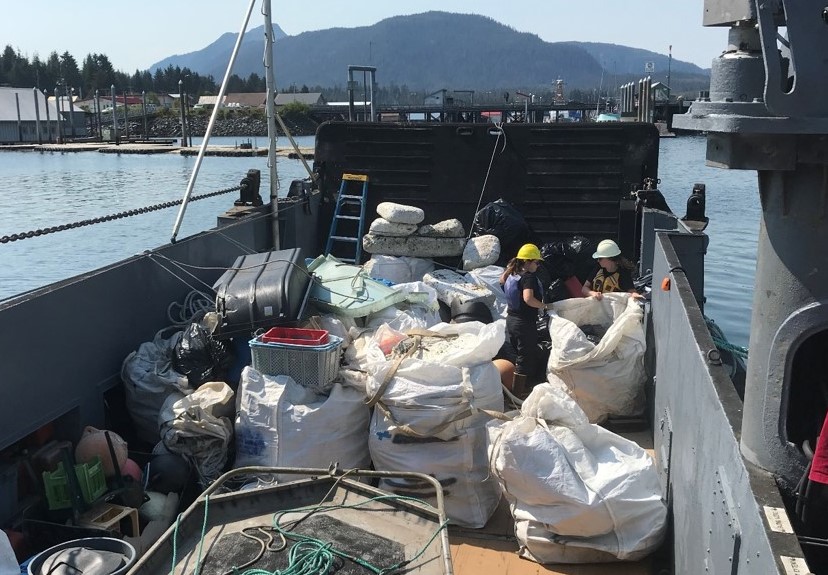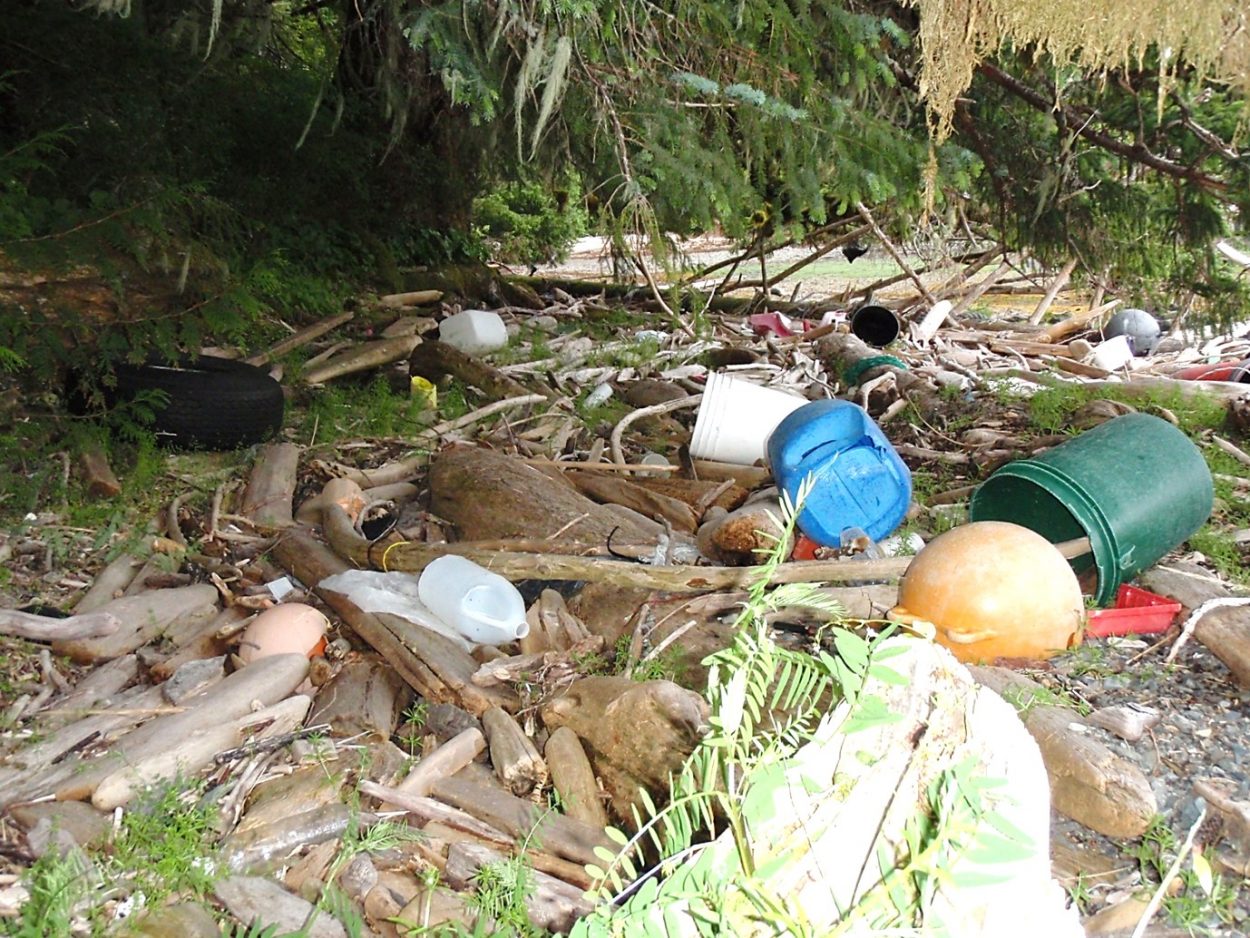
Petersburg’s “Plastic Group” is looking for creative ways to keep the local recycling program viable. In a recent video conference meeting, the volunteers talked about changes to plastics in the global economy and how it’s affecting their own island community.
About 15 people met online to discuss Petersburg’s current plastics situation and the local recycling program. The group’s small two-year grant just ran out and now members are asking, “What’s next?”
Joni Johnson is one of the group’s founders.
“What’s the next step in shifting to something more?” Johnson asked. “How do we work as the group to figure out what to do with recycling and to figure out how to implement different practices?”
The group’s grant money, $1,975 from the Petersburg Community Foundation, helped members educate students at the schools and create 250 reusable bags. They also put reusable bag trees in the grocery stores and held some informational community presentations. And they encouraged local businesses to move to more sustainable products.
Johnson says a main message has been that single-use plastics is a problem. It becomes micro- pieces that end up in fish and other animals, some of which humans eat.
“Plastic doesn’t disappear,” Johnson said, “It just continues to degrade into smaller and smaller pieces.”
Most of the group’s efforts have been volunteer-based. Forest service workers voluntarily gathered 7,400 pounds of trash from nearby beaches and brought it back to Petersburg’s dump. They picked up the trash when they were out doing other field work.
Forest Service Archeologist and Plastic Group member Gina Esposito says it’s a cyclical problem. You pick up a piece of trash here and another piece is thrown away there.
“We see it all the time,” she said. “We collect a lot of this trash; we work hard to get it disposed of off the beaches and then I come into [Petersburg grocery stores] and I see these bulk trays of Gatorade bottles that are sitting there and it just kind of makes me roll my eyes, like, ‘Oh, my God, it’s just cycles.”
But it’s not just the grocery stores or the consumers fault. Everyone has been led to believe that plastics are okay because it can be recycled. The problem is, it can’t. That’s the message in a film called, “The Story of Plastic” which the Petersburg group showed online recently.
Sunny Rice is another Plastic Group cofounder. She says the oil companies that produce the plastics do not want people to use less. Instead, they push the message of recycling.
“And they lobby to make sure that there are numbers on the bottom of your recyclable plastics but only a few of those are actually economically viable to recycle or can even be made into something that’s reusable and useful,” Rice said. “And yet there has been a concerted effort to make us to keep thinking that all plastics are fine because we can recycle them.”

While recycling might not be the answer to the plastics problem it’s better than putting all of it into the landfill. But recycling has grown more expensive in recent years. The market value of recycled products has declined. As of 2019, the Petersburg was being paid $8 a ton for its co-mingled recycling, which doesn’t include the borough’s cost of providing the service. The borough is now looking at different options to keep the program viable, including possible rate hikes.
80 percent of Petersburg households participates in the curb-side recycling program and the Plastic Group doesn’t want that to go down. Group member, Molly Taiber says now is an opportunity to help problem solve.
“The hopeful solution here is to clean this up and to produce a product where we’re not in the red,” Taiber said.
The Plastic Group suggest some options could be to collect only higher valued recycled products like cardboard, aluminum, tin, and plastics 1 and 2. Also, reducing pick-ups to every other week.
Group member, Emil Tucker, cautioned about changing the local recycling program too soon. He says it’s tied to the economy, which fluctuates.
“You don’t want to make too hasty of a decision,” he said. “You want to make good decisions but you don’t want to make too hasty of a decision because when there is a glut of something a surplus it’s just dying for entrepreneurs to take advantage of and so I feel like the market will rebound if we can just last long enough.”
One new recycling venture the Plastic Group is looking into is fishing nets. Taiber says there is a company in Washington called “Net Your Problem” that collects old gillnets and trawl gear from coastal communities. The plastic is sent to other countries that re-purpose it.
“Some of these companies are making products out of these like phone cases, shoes, kayaks, bathing suits, carpets, and office furniture,” Taiber said.
Petersburg’s group has also looked at Haines’ “Friends of Recycling”, which separates its recycling to make it more valuable.
Besides plastics, the local group talked about the need for composting in town because the borough is paying to barge heavy food waste out of state. Juneau has a company that collects compost there and the Petersburg group wonders if something similar could happen here.
In the end, the local volunteer group decided to continue decisions about what their next moves will be to help Petersburg deal with its plastics.










